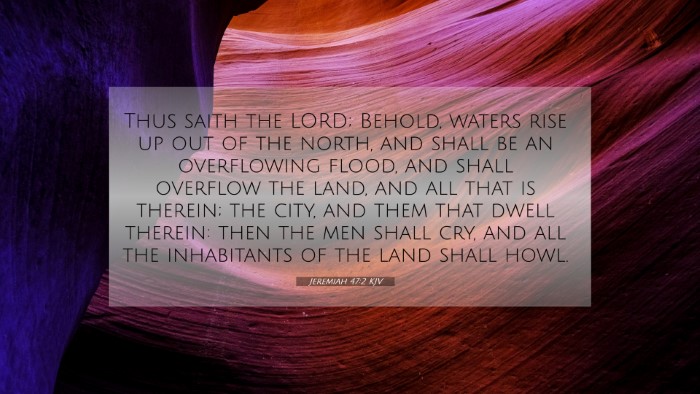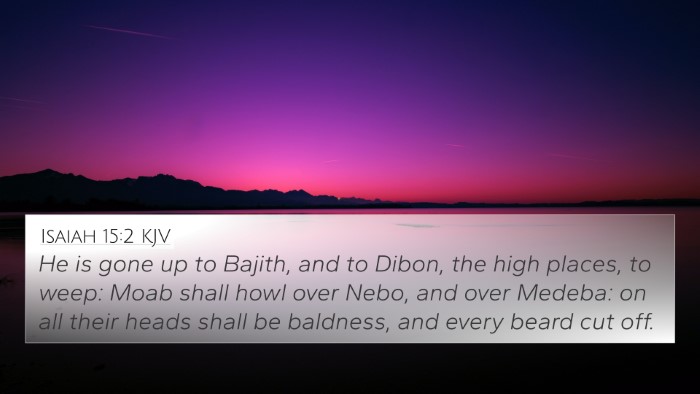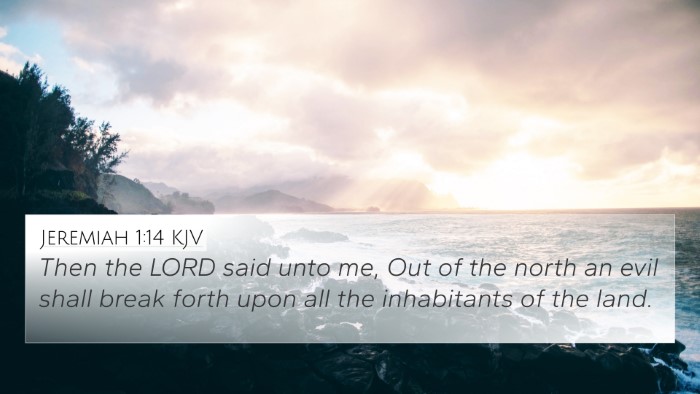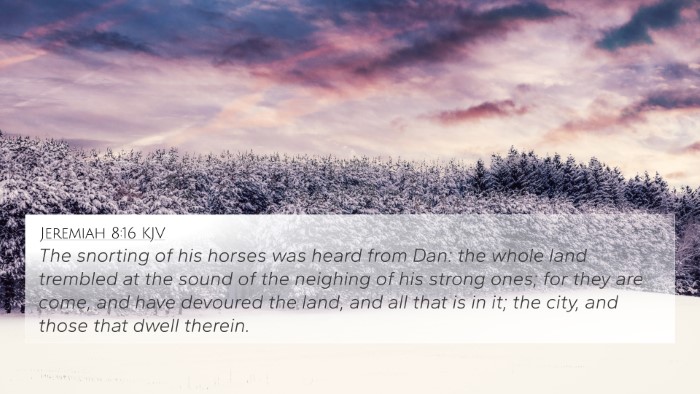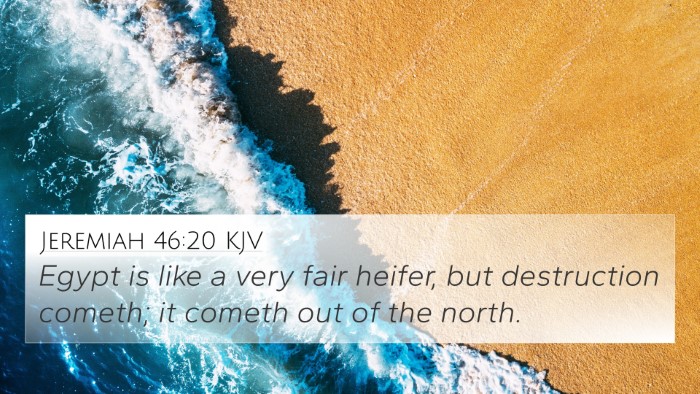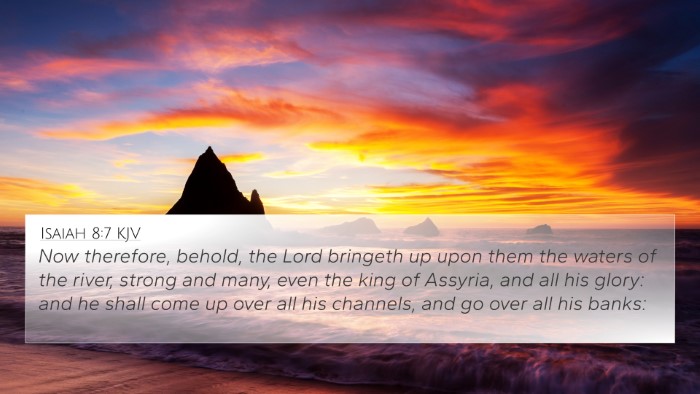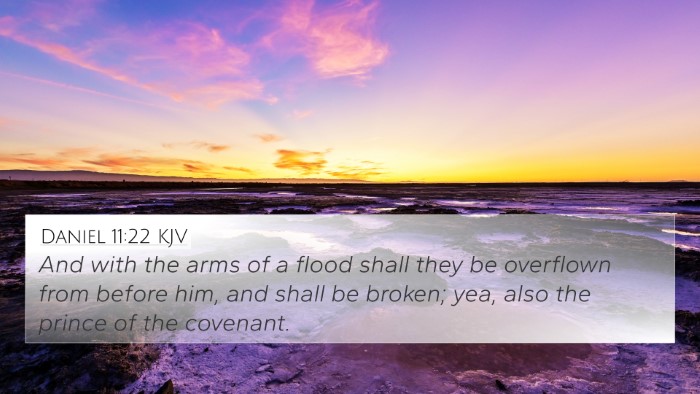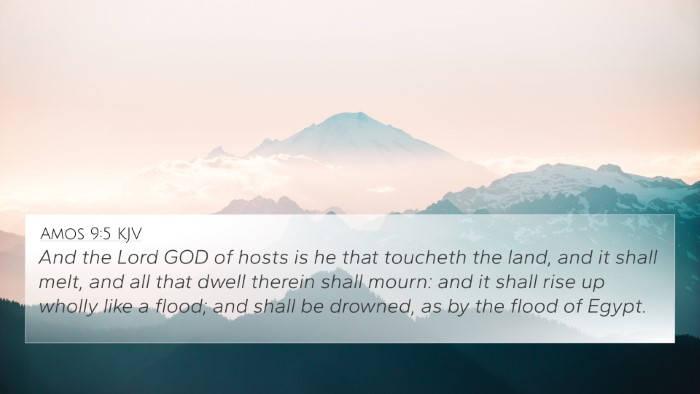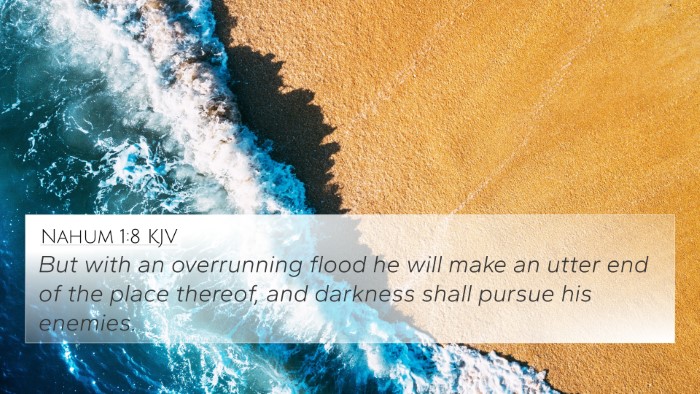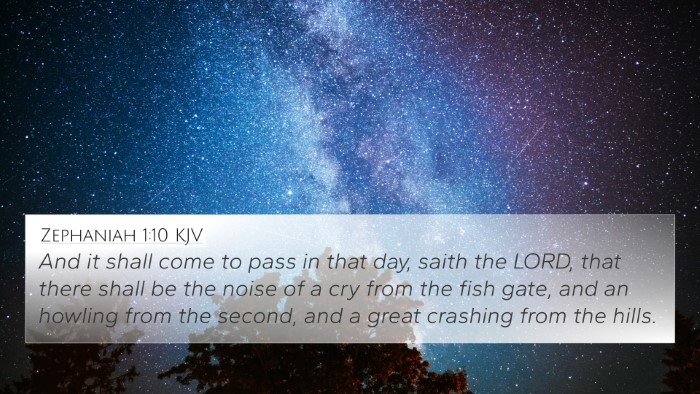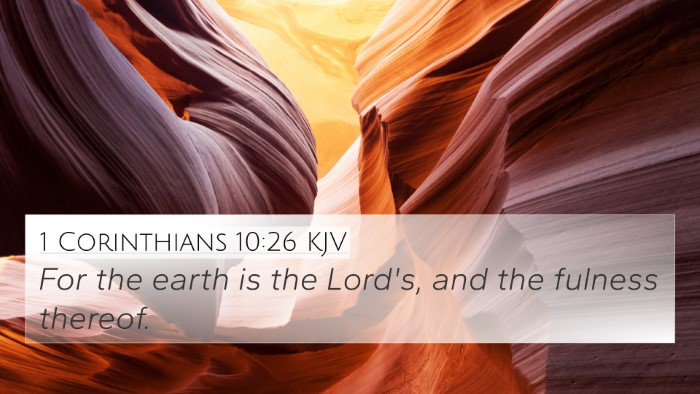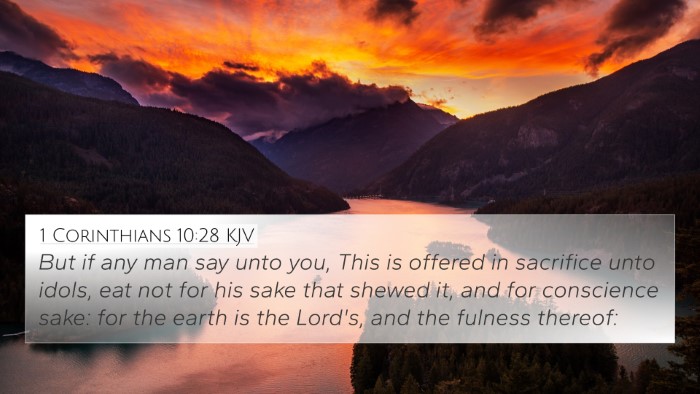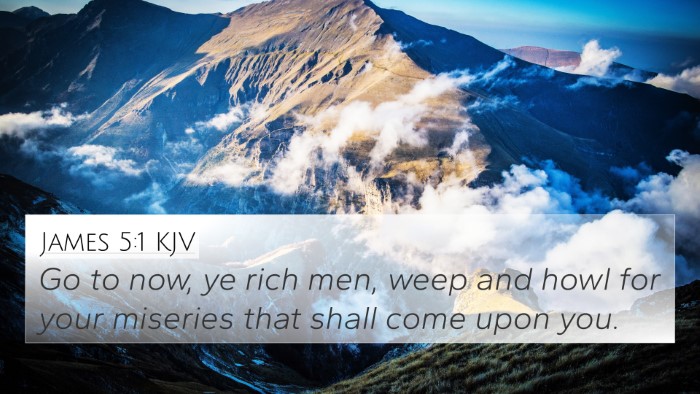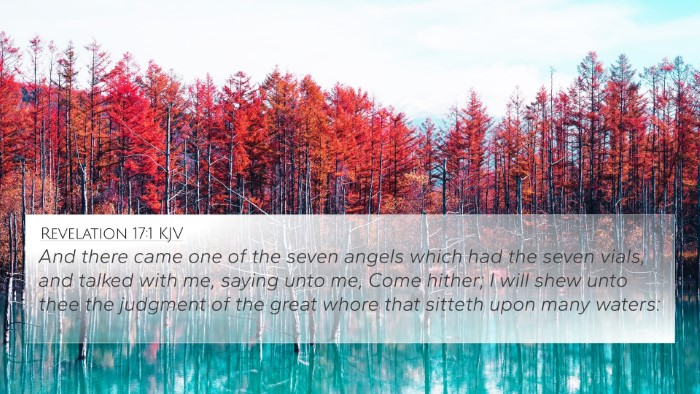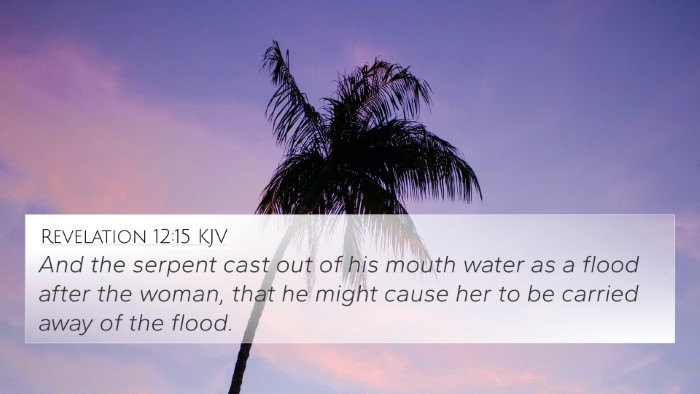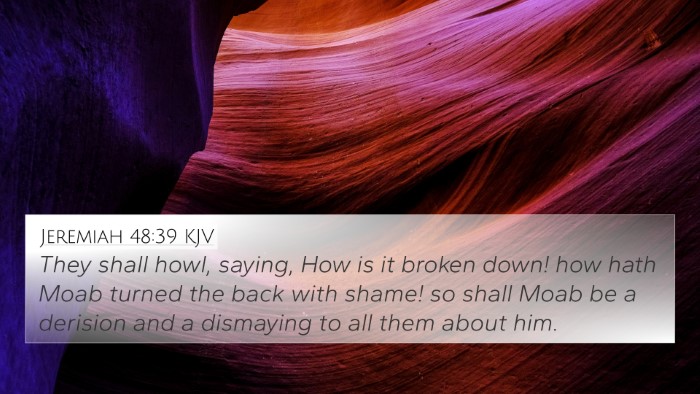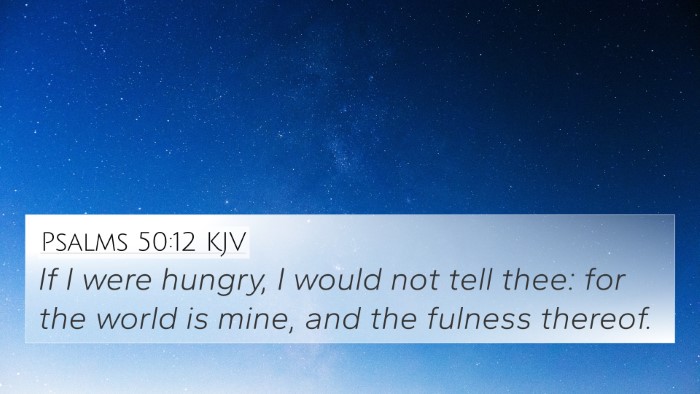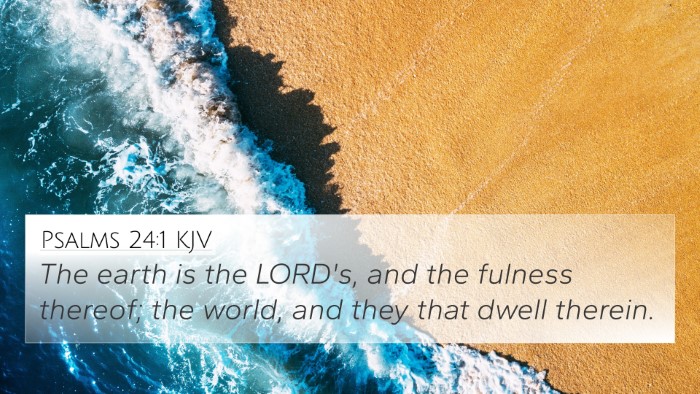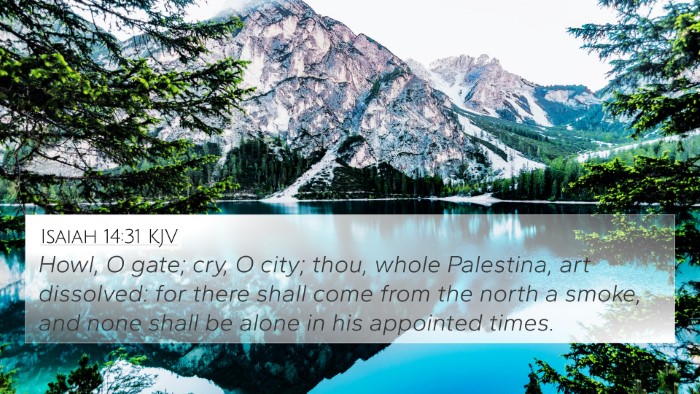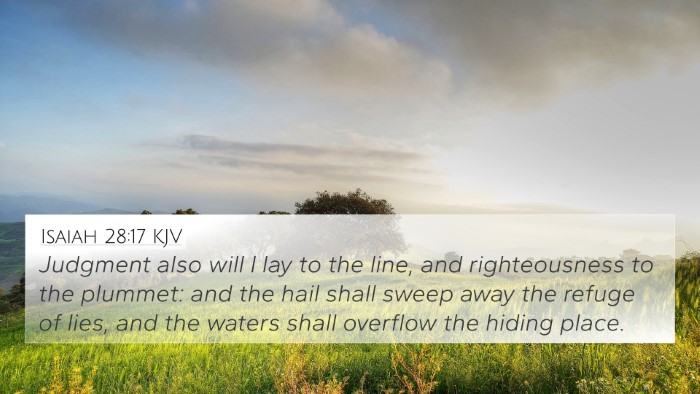Understanding Jeremiah 47:2
Jeremiah 47:2: "Thus saith the Lord; Behold, waters rise up out of the north, and shall be an overflowing flood, and shall overflow the land, and all that is therein, the city, and them that dwell therein: and the men shall cry, and all the inhabitants of the land shall howl."
Summary of Biblical Context
The Book of Jeremiah serves as a prophetic reflection of the impending judgments upon nations, particularly focusing on Israel and its neighbors. In Jeremiah 47:2, the prophet addresses the Philistines, using metaphorical language to depict an unstoppable flood that symbolizes divine judgment and disaster brought by foreign invaders.
Insights from Public Domain Commentaries
Matthew Henry’s Commentary
Matthew Henry provides insight that the “waters” rising from the north represent the armies of Babylon, which would bring ruin to the Philistines. He indicates that the prophecy’s imagery emphasizes the totality of destruction and sorrow that will envelop not just cities but the very lives of the people. Henry stresses the thematic element of God’s sovereignty, stressing that it is the divine will and power that directs these calamities toward the nations that have defied Him.
Albert Barnes' Notes on the Bible
Albert Barnes emphasizes the connection between the "overflowing flood" and the overwhelming force of Babylon’s military might. He interprets this verse as a declaration of God's judgment—a demonstration of His wrath against nations that have turned from Him. Furthermore, Barnes points out how this prophecy serves not only as a warning to the Philistines but also as a reminder for all nations about the consequences of rejecting God’s authority and righteousness.
Adam Clarke’s Commentary
Adam Clarke elaborates on the implications of the “cry” and “howl” that arise from the inhabitants. He highlights that the devastation is not merely about physical destruction but also encompasses psychological and spiritual despair. Clarke notes the historical context, indicating that this passage foreshadows the imminent fall of major cities like Gaza, portraying the lament of people who experience loss, fear, and hopelessness due to the flood of invaders.
Thematic Connections in Scripture
Jeremiah 47:2 can be cross-referenced with several significant verses that share themes of divine judgment, natural disasters, and the sovereignty of God:
- Ezekiel 30:4: "And a sword shall come upon Egypt, and great pain shall be in Cush, when the slain shall fall...."
- Isaiah 8:7-8: "Now therefore, behold, the Lord bringeth up upon them the waters of the river, strong and many, even the king of Assyria...."
- Revelation 17:15: "And he saith unto me, The waters which thou sawest, where the whore sitteth, are peoples, and multitudes, and nations, and tongues."
- Lamentations 2:19: "Arise, cry out in the night: in the beginning of the watches pour out thine heart like water before the face of the Lord...."
- Psalm 46:1-3: "God is our refuge and strength, a very present help in trouble. Therefore will not we fear, though the earth be removed...."
- Joel 2:30-31: "And I will show wonders in the heavens and in the earth, blood, and fire, and pillars of smoke... "
- Amos 5:18: "Woe unto you that desire the day of the Lord! to what end is it for you? the day of the Lord is darkness, and not light...."
Cross-Referencing Biblical Texts
Utilizing tools for biblical cross-referencing can deepen our understanding of themes and connections in the Scriptures. Each of these references sheds light on the profound nature of divine judgment, the certainty of God's plans, and the necessity of repentance.
Conclusion
Jeremiah 47:2 serves as a prophetic warning characterized by vivid imagery of calamity, reinforcing God's authoritative stance. As seen through the insights of commentaries, the significance of this verse extends beyond its immediate audience, echoing throughout the Biblical narrative as it connects various themes of judgment, despair, and ultimately, hope in God's sovereignty. Engage in further cross-referencing to explore more of these inter-Biblical dialogues that reveal the depth of Scripture’s message.


